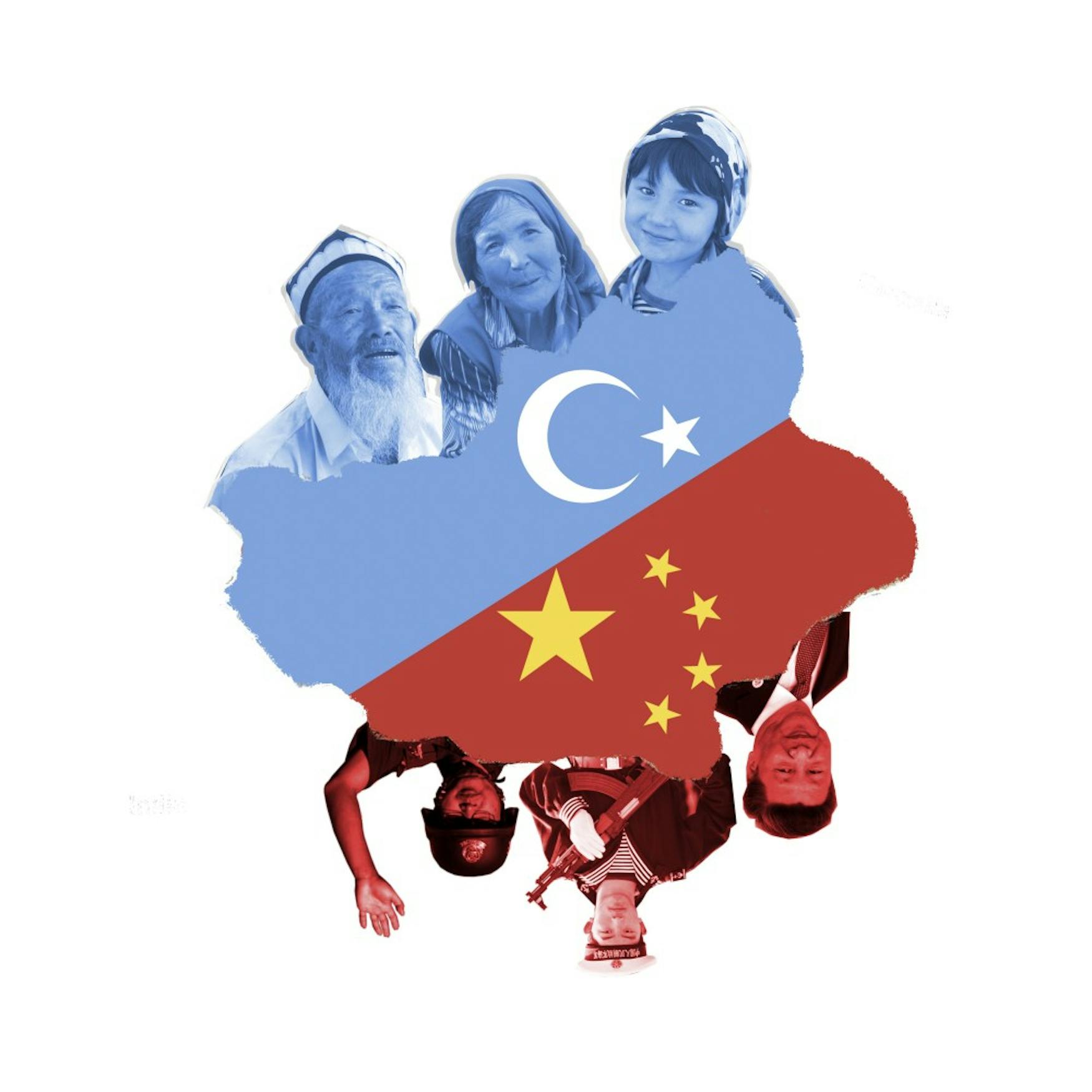China's oppression of Uyghurs remains hidden from view
Many people in the West are comfortable with the thought that the People’s Republic of China is a benign communist state. Especially within its close geographical proximity to the tyrannical North Korea, as well as its history under Mao Zedong, the iron grip of Beijing has with time loosened to a bearable squeeze. One might be taken aback to hear China is still putting people into “reeducation camps” based upon their religion. In the case of Muslim Uyghurs, this is a harsh reality the public seems to turn a blind eye to. Recent unrest across the world has sown seeds of systematic Islamophobia, and China’s government is using this to their advantage.
Uyghurs are an ethnic minority of Turkic-speaking Muslims that have lived in Central Asia for centuries. The Uyghurs have suffered continuously throughout their existence, being conquered countless times by other peoples. A large majority of the Uyghur population now inhabit an area in modern day China and Kazakhstan.
There is a large Uyghur presence in China, which has proven to be endlessly problematic for both sides. According to the 2000 Chinese census, the Xinjiang Uygur Autonomous Region is inhabited mainly by 45% Uyghurs and 40% Han Chinese. Historically, this has led to various disagreements and conflicts over the land. However, a recent positive feedback loop of crackdowns and subsequent protest has set an even worse precedent for the future concerning China’s religious minorities.
Though there appears to be freedom of religion in China as stipulated by its constitution, the Council on Foreign Relations asserts that “China is home to one of the largest populations of religious prisoners, likely numbering in the tens of thousands.” Religious tolerance in the Chinese constitution is purposefully vague, and the highly organized and efficient roundup of more than 120,000 Uyghurs in Xinjiang over the last several years has begun to make China’s intentions clear. In 2009, this intention turned into bloody mayhem during protests over the deaths of two Uyghurs in a previous ethnic conflict. According to a July 2009 Guardian article, over 140 protesters were killed by local police. Since then, the Chinese government has constricted around its prey. “From the start of November, public security bodies in Xinjiang will ... start a thorough 'strike hard and punish' campaign to further consolidate the fruits of maintaining stability and eliminate security dangers,” says the Chinese Communist Party newspaper, People's Daily. This piece of legislation is aimed at extinguishing Uyghur resistance, and as exhibited by the unencumbered imprisonment of thousands of innocent Uyghurs, the aim seems chillingly reminiscent of Maoist religious persecution.
The situation inside these re-education camps is frightening, to say the very least. According to NPR's Nov. 3 interview with ex-detainee Kayrat Samarkand, “Inmates had to sing songs praising Chinese leader Xi Jinping before being allowed to eat.” Constant exams on communist ideals accompany poor conditions within the camps. Though torture is not widespread according to Samarkand’s account, he had drawn the ire of the guards on multiple occasions. "They made me wear what they called 'iron clothes,' a suit made of metal that weighed over 50 pounds," he said, and after three days he had such ferocious pain he complied without question with the further ridiculous demands and interrogations. Samarkand was only released from the camps after he tried to commit suicide by slamming his head against a wall. In The Guardian's July 2009 interview with Human Rights Watch campaigner Maya Wang, she claims that “while authorities claimed the centres were about combating terrorism and separatism, they were in fact designed to brainwash and assimilate Uyghurs.” This is a call for the international community to be more diligent in resisting China’s abuses of its own population.
This, however, is an extremely difficult task. The efficiency and organization with which re-education camps have been set up shows that the Chinese government is a well-oiled machine when it comes to squashing resistance. In order to uphold the almighty image of the Communist Party, Uyghurs have been used as a scapegoat for the recent response to ethnic and religious injustice. In completing the trifecta, China’s large hand in the global market makes sanctions extremely difficult. Thousands of Uyghurs in Kazakhstan still have relatives in China that have gone missing, and this number will only increase as the global ignorance regarding this issue persists.
In today’s political climate, minorities have all too often been used as scapegoats to quench the public’s thirst for moral retribution when it comes to unrest. Islamophobia is spreading like a disease, and it is important to remember that not 75 years ago Japanese internment camps existed in America. All this aside, a piece of bipartisan legislation, spearheaded by Representative Chris Smith (R-NJ) and Thomas Suozzi (D-NY), is making its way through Congress. In introducing the legislation, Smith said, “The Chinese government’s creation of a vast system of what can only be called concentration camps cannot be tolerated in the 21st century,”
As lawmakers pass legislation to combat this injustice on the political stage, it is important to talk about the issue at hand, which often takes second place in the news. It is imperative that these violations of human rights get the attention they deserve.



Please note All comments are eligible for publication in The Justice.